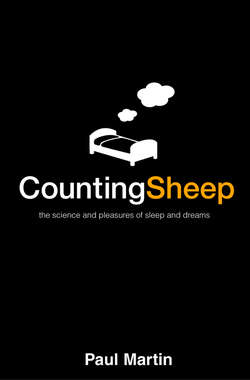Читать книгу Counting Sheep: The Science and Pleasures of Sleep and Dreams - Paul Martin - Страница 33
Body and soul
ОглавлениеHealth may be as much injured by interrupted and insufficient sleep as by luxurious indulgence.
William Kitchiner, The Art of Invigorating and Prolonging Life (1822)
What of people? Research on humans has stopped short of the lethal sleep deprivation imposed on rats and puppies, but it has delved systematically into the consequences of a few days’ sleep loss. The results consistently show that moderate sleep deprivation has pervasive effects on the human body as well as the human mind. Sleep loss impairs vision, for example, causing blurring and errors in judging distances. It also triggers the familiar decline in body temperature that Marie de Manacéïine observed in her puppies, together with a reduction in blood glucose levels and changes in various hormones.
Set against this, sleep loss has surprisingly little impact on our ability to keep moving around and doing physical work. Moderate sleep deprivation does not greatly diminish our capacity for labour. Physically fit young adults can withstand several days of sleep deprivation without a substantial deterioration in their muscle strength, muscle endurance or cardiovascular responses to exercise. In one experiment, for example, the exercise capacity of young women was assessed following 60 hours without sleep. The sleep deprivation had no significant effect on their aerobic capacity or their endurance for exhausting exercise. In another study, researchers monitored two men while they played a marathon tennis match lasting a week, during which time the players got very little sleep. Although their mental performance deteriorated during the match, the players were able to sustain a high level of physical work. Our muscles can mostly keep going even when our brains are flagging.
Sleep deprivation does disturb many aspects of physiological functioning, however. Breathing is one example. A single night of sleep loss impairs breathing in healthy people, provoking a small but significant reduction in the maximum amount of air that can be exhaled after maximum inhalation. Sleep loss also leads to a substantial blunting of the normal respiratory responses to reduced blood-oxygen levels. After 30 hours without sleep there are marked deteriorations in the strength and endurance of the muscles used for breathing – as revealed, for example, by a reduction in the time for which people can breathe in against a sustained pressure. Such changes could be important in patients with respiratory diseases, who often suffer from chronic sleep loss. Sleep deprivation also slows the rate of cardiovascular recovery from intense exercise. When someone has been deprived of sleep for 24 hours, their breathing rate and oxygen uptake after a burst of intense exercise remain higher for longer.
Sleep loss is accompanied by many changes in body chemistry. People who have been kept awake for more than three days have altered liver functions, marked by large increases in the levels of key liver enzymes, changes in various types of fat and a rise in the amount of phosphorus circulating in the blood. Thyroid hormone levels are affected and biochemical changes can be detected at the level of gene activity.
Glucose metabolism is particularly perturbed by sleep loss. Healthy young men whose sleep was experimentally restricted to four hours a night for six nights became less tolerant to glucose. They took 40 per cent longer than normal to regulate their blood-sugar levels after eating high-carbohydrate food, and their ability to produce insulin fell by nearly a third – a condition resembling the early signs of diabetes. These abnormalities vanished after the men had slept for 12 hours. Fatigue-induced physiological changes like these could contribute to the development of chronic conditions such as diabetes, obesity and high blood pressure, all of which are associated with a shortened lifespan.
